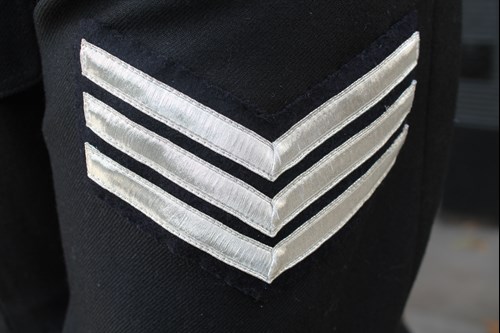Federation Chair: A huge short term influx of officers places huge pressures on the Constabulary
4 February 2021

The influx of thousands of new police officers has left serving Sergeants with greater workloads, demands and more stress at work, a new report has found.
The Police Federation of England and Wales report, “The Demand Capacity & Welfare Survey 2020 - The Officer Uplift and Sergeant Impacts”, found that more than half of sergeants felt they had insufficient time and resources to support new Constables.
Under the Government’s “Uplift” programme, 20,000 new police officers are to be recruited by March 2023, taking the service back to the numbers of officers it had a decade ago.
This recruitment drive will see many Sergeants having more inexperienced PCs to supervise than ever before, with more than 6,600 officers recruited as part of that 20,000 over the past year.
The new PFEW research lays bare the impact of this flood of rookie recruits.
Paul Williams, Chairman of Cumbria Police Federation, said: “A huge short term influx of officers places huge pressures on the Constabulary and albeit we manage it as best we can, there are long term problems to this.
“Training is one, especially in the climate with social distancing and Covid-19 legislation. Some training is being done remotely which waters down the quality of presentation and the trainers are under pressure to deliver.
“We also have to ensure there are enough tutor constables working on shifts to nurture these officers into policing. This is a unique role and it takes years to get to grips with policing before officers are fully competent.”
He added: “The dilution of experienced cops is worrying and places strains on the sergeants managing the shifts. Cumbria has increased its resilience in sergeant numbers but they are under pressure. It would have been a better situation if Government didn’t slash the numbers in the first place and we were accused of crying wolf when we highlighted the issues that we are facing now would happen.
“The uplift is good but places burden on constabularies and management with high numbers and having to manage this is tough but effort and commitment is there to ensure this is managed and working to maintain experience that we have as this is vitally important.”
32% of Sergeant respondents to the PFEW research are concerned they will be overseeing a high number of inexperienced recruits.
54% said it was unlikely or extremely unlikely that they will have enough time and resources to manage this increase in their shift management responsibilities.
And 49% said they did not believe their force will have enough Sergeants or line managers to supervise the new recruits.
One sergeant told the survey: “We don't have the time to train and mentor new officers. Their foundation training is not good enough, even worse now with Covid. Probationers are left to train other probationers. We can't effectively supervise the officers we already have.”
Another said: “A few years ago, response sergeants were a 1:7 ratio, now they're 1:10, this will only increase with the uplift. There will need to be more sergeants as 1:10 is already too many.”
Over 1,000 Sergeants responded to the survey. Many comments indicated that inadequate training for the new recruits had led to additional burdens being placed on Sergeants and tutor constables, and some Sergeants highlighted that the sudden influx of inexperienced officers could pose a risk to officer safety.
Others raised issues about limited resources; such as a lack of facilities, equipment and space for the new recruits to use, whilst others raised concerns over the general impact of the officer uplift on sergeant workloads and negative consequences on their wellbeing.
Dave Bamber, PFEW’S Professional Development Lead, said: “All too often the organization is happy to assess sergeants but not develop them. This influx of younger, more inexperienced officers will put pressure on staff to supervise them when they haven’t had the additional training they need to do this. Added to this, the recruits’ lack of experience means that more supervision will be needed.”
To read the survey in full, go to: https://www.polfed.org/media/16560/dcw_sergeants-report-20-01-21-v10.pdf



















